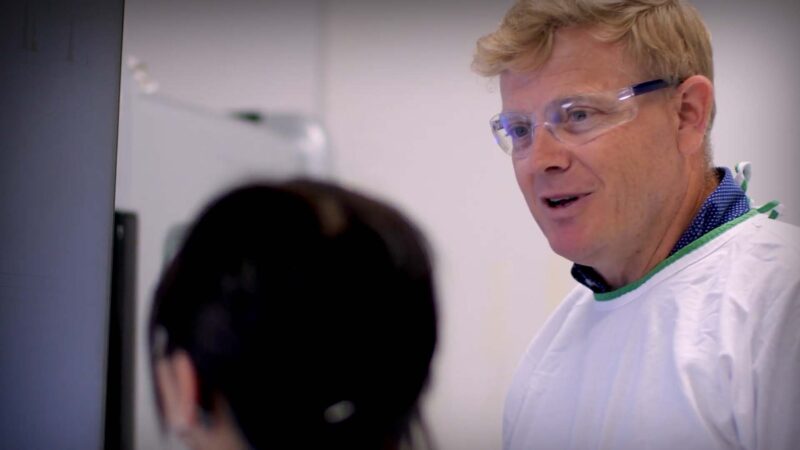RESEARCHER PROFILE
Associate Professor Amy McCart Reed (Filmed June 2024)
Senior Principal Research Fellow,
Centre for Clinical Research
University of Queensland,
Australia
Associate Professor Amy McCart Reed holds a PhD in molecular biology from The University of Queensland. She is a Fellow of the Faculty of Science of the Royal College of Pathologists Australasia. Her early postdoctoral work focused on understanding the genetic basis of colorectal cancer using experimental disease models, as part of a Cancer Research UK-funded colorectal cancer program led by Professors Ian Tomlinson and Andrew Silver.
After returning to Australia, she was recruited to the Molecular Breast Pathology group at UQ’s Centre for Clinical Research and has undertaken a series of studies investigating the genomic landscape of breast cancer special types. Amy’s research program includes studies on Metaplastic breast cancer and Invasive Lobular Carcinoma, two breast cancer special types in need of targeted therapy options.
Assoc Prof McCart Reed is the scientific lead on an MRFF-funded (Medical Research Future Fund) genomics program investigating the potential for the application of Whole Genome Sequencing in the breast cancer care pathway in Australia, ‘Q-IMPROvE’. She applies genomics and spatial transcriptomics methodologies to archival clinical samples to understand the differences between tumour types and their potential for treatment. Amy is passionate about clinical research, biobanking and precision oncology. In addition to her breast cancer research portfolio, she is on the steering committee for the Brisbane Breast Bank and the Scientific Advisory Board for Breast Cancer Trials.
You Might also like
-
Professor Matthew Kiernan
BRAIN AND MIND CENTRE
@ UNIVERSITY OF SYDNEY, NEW SOUTH WALES AUSTRALIA -
-
Next generation nanomedicine and radiopharmaceuticals to treat cancer
Finding better ways of treating cancer, aside from finding a cure, aim to provide a better quality of life for those who suffer from it.
Professor Thurecht’s work focuses on nanomedicine and spans across the Australian Institute for Bioengineering and Nanotechnology and the Centre for Advanced Imaging, at the University of Queensland in Australia.



